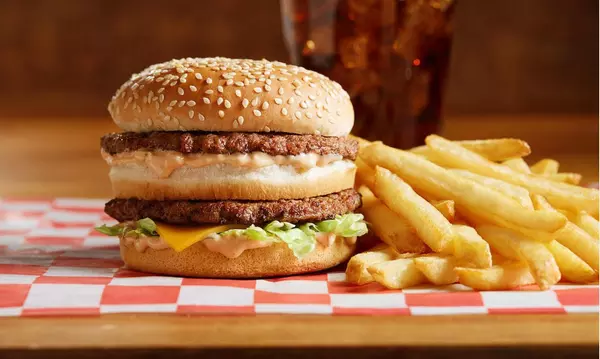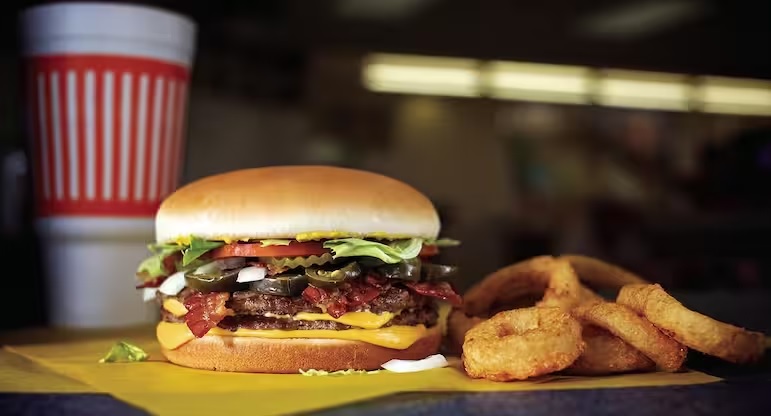Thinking about Dave Grohl's financial standing in 1994, it's almost like peering back into a moment of incredible change for him. That year, of course, was a really pivotal one, marked by profound shifts both personally and professionally. Many people wonder what a rock star's finances look like, especially during such a significant period. It's a common thought, perhaps, to imagine vast sums, but the reality for musicians, even very successful ones, can often be a bit more nuanced than that.
So, we're going to explore what Dave Grohl's net worth might have been around 1994. It's not just about a number; it's about the context of a musician at the peak of one band's fame and at the very beginning of another's journey. This was a time when the music industry, in some respects, was still operating on older models, and, you know, artists were finding their way through it all. It really makes you think about how different things are now, doesn't it?
This article aims to give you a clearer picture, drawing on what's generally known about music industry earnings from that era and, arguably, the unique circumstances Dave Grohl found himself in. We'll look at the factors that shaped his financial situation and, in a way, how he might have been thinking about his future, much like how people today look for smart ways to manage their money, perhaps even seeking out quick access to funds or ways to avoid extra fees, as we see with some modern financial tools.
Table of Contents
- Dave Grohl: A Brief Biography and Personal Details
- The Musical Landscape of 1994
- Nirvana's Impact and Earnings Potential
- Estimating Dave Grohl's Net Worth in 1994
- The Transition to Foo Fighters and Future Earnings
- The David and Goliath of the Music World
- Frequently Asked Questions About Dave Grohl's 1994 Finances
- Final Thoughts on a Pivotal Year
Dave Grohl: A Brief Biography and Personal Details
David Eric Grohl, born in Warren, Ohio, has certainly made a big mark on music. He began his musical journey quite early, picking up instruments and playing in various local bands during his teenage years. His path, you know, wasn't always clear, but his passion for drumming was always there. Before Nirvana, he spent time with the hardcore punk band Scream, touring extensively and gaining valuable experience.
His big break, arguably, came when he joined Nirvana in 1990. This move changed everything for him and, of course, for the band. He quickly became known for his powerful, distinctive drumming style, which was a huge part of Nirvana's sound. The band's rise to global fame was incredibly fast, with their album "Nevermind" truly shaking up the music world. It was a whirlwind, very, very fast, and Dave was right there in the middle of it all, a key part of something truly massive.
After Nirvana's unexpected end in 1994, Dave Grohl faced a truly challenging moment. Many people might have, you know, just stepped away from music entirely. But he chose to keep creating, which led to the formation of Foo Fighters. This new band allowed him to step into the role of frontman and songwriter, showcasing his incredible versatility. It was a fresh start, a different path, and it really solidified his place as a major figure in rock music for decades to come.
Personal Details and Bio Data
| Detail | Information |
|---|---|
| Full Name | David Eric Grohl |
| Date of Birth | January 17, 1969 |
| Age in 1994 | 24-25 years old |
| Birthplace | Warren, Ohio, USA |
| Primary Instruments | Drums, Guitar, Vocals |
| Notable Bands (1994) | Nirvana (former), Foo Fighters (founding) |
| Role in Nirvana | Drummer |
| Role in Foo Fighters | Lead Vocals, Guitar, Songwriter |
| Marital Status (1994) | Married to Jennifer Youngblood (1994-1997) |
The Musical Landscape of 1994
The year 1994 was a fascinating time for music, truly. Grunge had, in a way, reached its commercial peak, and its influence was everywhere. Bands like Pearl Jam, Soundgarden, and Alice in Chains were selling millions of albums, just like Nirvana had done. This period was also seeing the rise of alternative rock and punk revival bands, so, you know, there was a lot of new energy in the air. It was a vibrant time, but also one with a lot of shifts happening, a lot of different sounds getting popular.
For musicians, especially those in successful bands, earnings typically came from a few main sources. Album sales, of course, were a big one, though artists only received a small percentage per unit sold after record labels, distributors, and producers took their cuts. Touring was another major income stream, with bands earning money from ticket sales and merchandise. Publishing royalties, from songwriting credits, were also important, though, you know, drummers often don't get as much of that pie unless they contribute to the writing.
However, the music business in 1994, in some respects, still had its old ways of operating. Record deals could be quite restrictive, with labels often recouping large advances before artists saw significant profits. This meant that even hugely successful bands might not be swimming in cash as much as fans imagined. It was a system that, arguably, hadn't changed in decades, and artists, especially new ones, often found themselves trying to navigate its complexities, trying to, you know, get quick access to their money without too many fees.
Nirvana's Impact and Earnings Potential
Nirvana's success was, quite simply, massive. "Nevermind," released in 1991, sold millions upon millions of copies worldwide, changing the sound of popular music. Their follow-up, "In Utero," released in 1993, also sold incredibly well, though perhaps not quite as much as "Nevermind." These sales figures mean, you know, a lot of money was generated, but how that money trickled down to the band members is a different story.
For a band like Nirvana, the earnings would have been split, typically, among the core members after all the various deductions. Royalties from album sales, touring income, and merchandise sales were the main components. While the band as a whole generated vast sums, each member's personal share, especially for a drummer who might not have had as many songwriting credits, could be significantly less than the total gross earnings. It's a very common thing in bands, actually.
By 1994, Nirvana had toured extensively, played huge venues, and sold an incredible amount of merchandise. So, they were definitely earning a lot. However, the exact financial arrangements within the band, and with their record label, are not public. It's safe to say, though, that Dave Grohl, as a key member of one of the biggest bands in the world, was in a much better financial position than most musicians, very, very much so, even after all the cuts. He was, in a way, slaying the Goliaths of the old music business, finding his own path to financial stability.
Estimating Dave Grohl's Net Worth in 1994
Pinpointing an exact net worth for a private individual, especially from 1994, is, honestly, nearly impossible without access to personal financial records. However, we can make some educated guesses based on industry standards and Nirvana's success. As a drummer, Dave Grohl would have received a share of album sales royalties, touring profits, and merchandise income. He was not the primary songwriter, so his share of publishing royalties would have been smaller compared to Kurt Cobain's.
Considering Nirvana's immense sales figures – "Nevermind" alone had sold over 10 million copies by 1994 in the US, and "In Utero" was well on its way to multi-platinum status – the band's collective earnings were in the tens of millions of dollars. If we assume, very roughly, that a band member might receive a few percentage points of the wholesale price of an album, plus their share of touring and merchandise, Dave Grohl would have accumulated a significant amount. For instance, if the band collectively earned, say, 10-15% of wholesale on album sales, and that was split among the members, his share would still be substantial.
Industry estimates for band members of such successful groups often place their individual net worths in the low to mid-single-digit millions during their peak. So, it's quite probable that by 1994, Dave Grohl's net worth was somewhere in the range of, perhaps, $1 million to $5 million. This is a general estimate, of course, and depends heavily on specific contract details and personal spending habits. But it's a good way, you know, to think about the scale of his financial situation at that time, especially for someone so young. He certainly wasn't struggling for cash, but he also wasn't a billionaire, far from it, actually.
It's important to remember that much of this money would have come in over the preceding few years, and 1994 marked a very abrupt end to one major income stream. The financial security he had built up, however, gave him the freedom to, you know, think about his next steps without immediate money worries. This financial cushion, in a way, gave him the flexibility to pursue new creative avenues, like starting Foo Fighters, without having to take on side hustles just to get by, which is something many musicians face.
The Transition to Foo Fighters and Future Earnings
The period after Nirvana was, undoubtedly, a time of deep personal reflection for Dave Grohl. Many people might have just, you know, stopped playing music for a while. But he found solace in writing and recording new songs, mostly by himself. This creative outpouring led directly to the first Foo Fighters album, released in 1995. This new venture, in a way, was his personal response to a very difficult time, and it also marked a fresh start for his financial journey.
Initially, Foo Fighters was a very different beast from Nirvana. It started as a solo project, with Grohl playing nearly all the instruments on the debut album. This meant that early earnings, if any, would have gone directly to him. As the band grew and brought in other members, the financial structure would have changed, moving towards a more traditional band split. Their early tours were in smaller venues, and their first album, while successful, didn't immediately reach the stratospheric sales of Nirvana's records. So, his income stream, actually, would have shifted quite a bit.
However, the foundation of Dave Grohl's existing net worth from Nirvana's success provided a crucial safety net. This allowed him the freedom to build Foo Fighters organically, without the immediate pressure to generate massive income. It was a chance to, you know, challenge the old ways of managing a music career, perhaps, by focusing on artistic integrity first. As Foo Fighters gained popularity, their earnings grew steadily, eventually making them one of the biggest rock bands in the world. This long-term success, fueled by consistent touring and album sales, has, of course, contributed significantly to his net worth over the decades, making him one of the wealthiest musicians around today.
The David and Goliath of the Music World
Thinking about Dave Grohl's journey, especially around 1994, really brings to mind the idea of "David and Goliath." Here was a musician, facing the immense "Goliath" of personal loss and the end of a legendary band. Yet, he chose to pick up his own "sling" – his guitar and his songs – and, you know, start something new, something that felt right to him. This act of starting fresh, of building a new path, is, in a way, similar to how modern financial tools aim to challenge the old ways of managing money, making it easier for people to get quick access to what they need, perhaps even offering cash advances with fewer fees.
His story, therefore, isn't just about a number on a balance sheet; it's about resilience and, arguably, about finding a new purpose. Much like how some financial services aim to empower individuals to manage their funds better, giving them control and flexibility, Dave Grohl took control of his creative and professional life. He didn't just sit back on past earnings; he actively worked to build something new, something that continues to resonate with millions of people. It’s a pretty inspiring story, actually, when you look at it that way.
The financial stability he had from Nirvana gave him the breathing room to, you know, take that brave step. It meant he didn't have to worry about needing extracash™ just to get a new project off the ground. He had the freedom to experiment, to find his own voice as a frontman, and to build a band that would become just as iconic in its own right. His journey shows that, sometimes, having that bit of financial peace can really allow you to focus on what truly matters, to focus on your passion, and to truly make a difference in your chosen field.
Frequently Asked Questions About Dave Grohl's 1994 Finances
What was Dave Grohl's role in Nirvana's earnings?
As Nirvana's drummer, Dave Grohl received a share of the band's earnings from album sales, touring, and merchandise. While the exact percentage isn't public, it would have been a significant portion, though typically less than the primary songwriter's share. He was, you know, a full member, so he was definitely getting a good cut of the band's overall profits.
How did Nirvana's album sales contribute to his net worth?
Nirvana's albums, especially "Nevermind" and "In Utero," sold tens of millions of copies worldwide by 1994. These massive sales generated substantial royalties for the band. Dave Grohl's share of these royalties, distributed over time, would have been the primary component contributing to his net worth in 1994, very much so, a huge part of it.
Did Dave Grohl have other income streams in 1994?
While Nirvana was his main source of income, Dave Grohl also had some minor side projects, like his Pocketwatch demo recordings, which later became the foundation for Foo Fighters. However, these were not significant income streams in 1994; they were more about creative expression. His main financial gains were, you know, from being in one of the biggest bands on the planet at the time.
Final Thoughts on a Pivotal Year
The year 1994 was, undeniably, a crossroads for Dave Grohl, both personally and financially. He went from being the drummer in the world's biggest band to facing an uncertain future. His accumulated net worth from Nirvana's success, estimated to be in the low to mid-single-digit millions, provided him with a crucial foundation. This financial stability, actually, gave him the freedom to grieve, reflect, and ultimately, to create something entirely new, something that truly spoke to him. It's a very clear example of how, you know, having some financial security can allow for great creative risks.
His decision to start Foo Fighters, virtually from scratch, was a testament to his passion for music and his desire to keep creating, rather than just resting on past laurels. This period highlights that while a net worth figure gives us a snapshot, the story behind it, the journey, is often far more compelling. It shows, in a way, how someone can take a difficult situation and turn it into an opportunity for growth, for something truly amazing. It's a story of resilience, really, and of finding a new path forward, much like how people seek out modern solutions to manage their money, looking for ways to get cash when they need it, or to make their financial lives a bit easier. Learn more about Dave Grohl's career on our site, and link to this page to explore how rock stars manage their money over time. For more on the music industry's financial workings in the 90s, you might find information on the RIAA's website helpful.



Detail Author:
- Name : Prof. Tyler Veum Sr.
- Username : faye.farrell
- Email : alba.wilderman@yahoo.com
- Birthdate : 1995-08-24
- Address : 414 Camilla Crossroad Apt. 647 South Harold, SC 04675
- Phone : (618) 336-2736
- Company : Nikolaus Group
- Job : Astronomer
- Bio : Vel quis illo architecto deleniti adipisci soluta. Sequi quas id quia omnis qui. Minima in dolorum voluptates alias dolore. Architecto deserunt incidunt eligendi sint occaecati est.
Socials
linkedin:
- url : https://linkedin.com/in/rodger.champlin
- username : rodger.champlin
- bio : Non est nemo nihil deserunt at.
- followers : 2603
- following : 1681
instagram:
- url : https://instagram.com/rodger.champlin
- username : rodger.champlin
- bio : Fuga a est quisquam qui. Quia id iure explicabo reprehenderit.
- followers : 6034
- following : 2700
tiktok:
- url : https://tiktok.com/@rodger.champlin
- username : rodger.champlin
- bio : Corrupti aliquam rerum ut odio asperiores. Et eum sunt deserunt velit aut aut.
- followers : 1880
- following : 2636
twitter:
- url : https://twitter.com/rodger_official
- username : rodger_official
- bio : Et dolor sit non saepe occaecati ipsum quasi mollitia. Voluptate libero excepturi perferendis debitis reprehenderit in exercitationem. Quo ea ea dolor.
- followers : 2889
- following : 1128
facebook:
- url : https://facebook.com/champlinr
- username : champlinr
- bio : Amet ut accusamus et accusamus minima est accusantium.
- followers : 4305
- following : 881